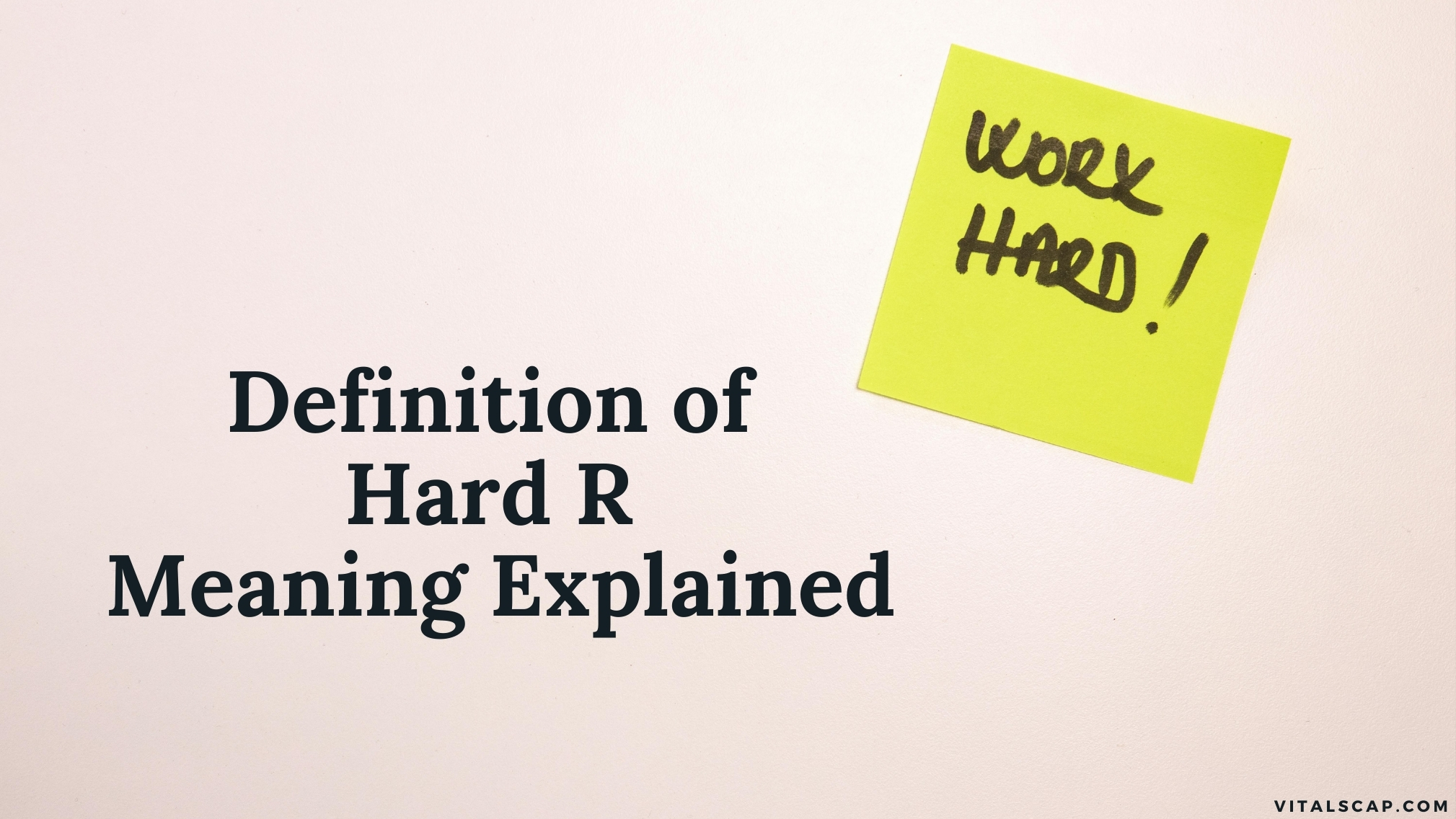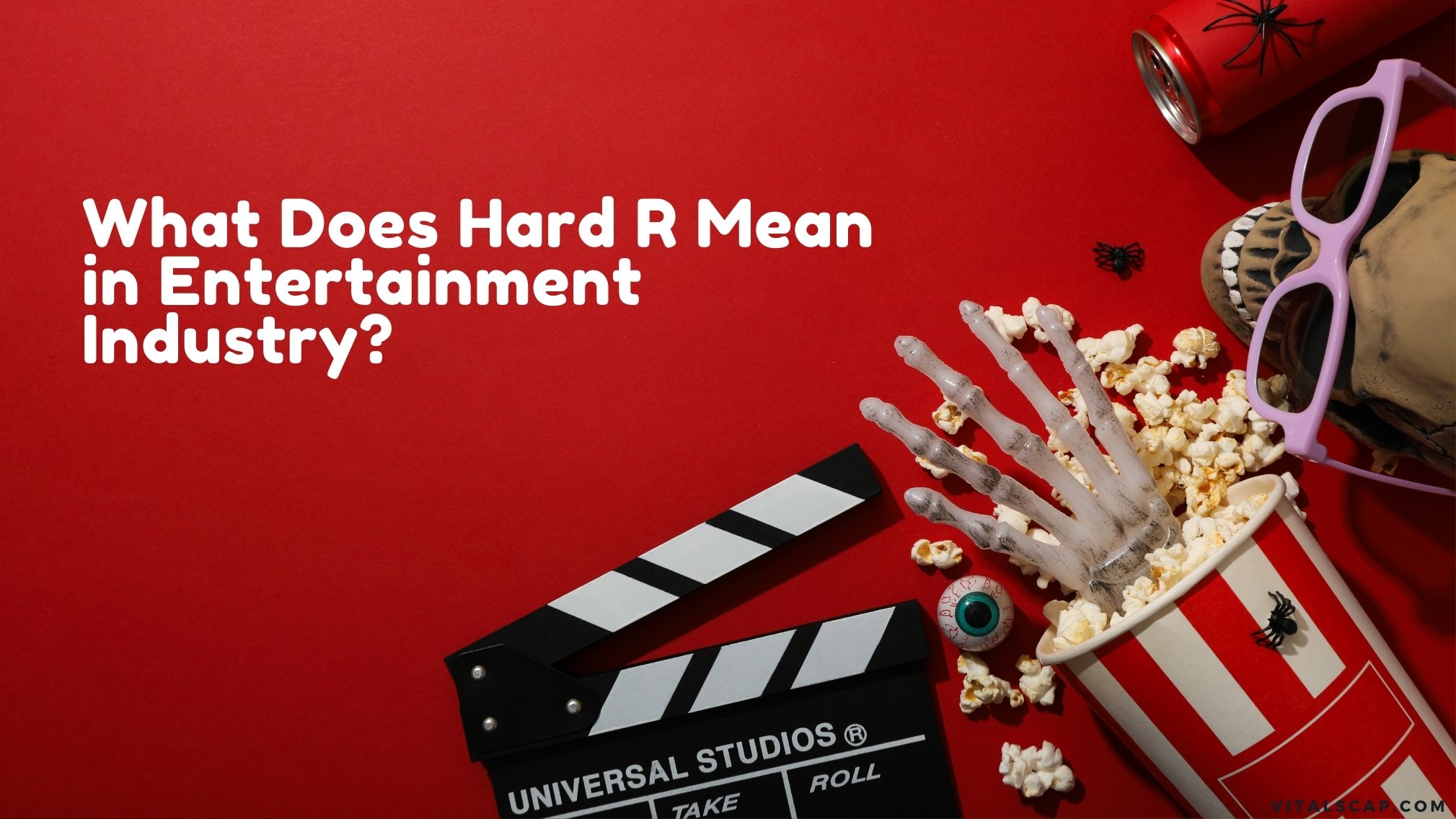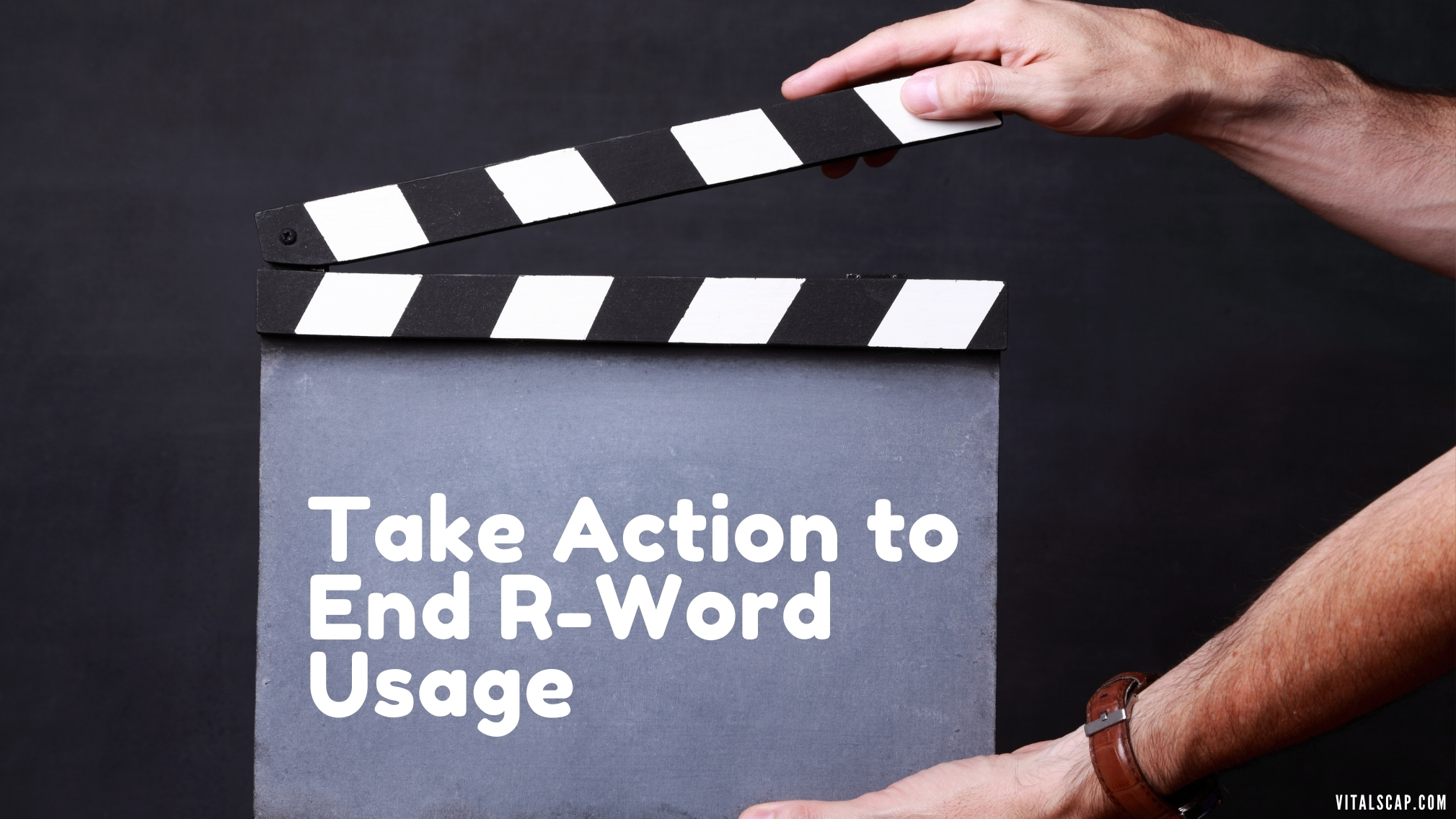You’ve encountered “hard r” in conversations, social media posts, or academic discussions. This loaded phrase carries multiple meanings that demand careful understanding across different contexts in American society.
What does hard r meaning actually encompass? The term spans from legitimate linguistic discussions to controversial slang usage. Understanding these distinctions helps you navigate complex conversations while maintaining cultural sensitivity and professional awareness.
Definition of Hard R Meaning Explained

Understanding what does hard r meaning requires examining four distinct interpretations Americans encounter regularly. The racial slur meaning represents the most controversial usage, connecting to centuries of discrimination in language. Meanwhile, linguistic professionals use “hard r” for pronunciation emphasis in speech patterns.
Internet slang adoption creates coded language discussions online. The cultural context of “hard R” varies dramatically between academic settings and social situations. Context-dependent meaning of slang makes navigation challenging for everyday Americans seeking clarity about appropriate usage.
| Context | Definition | Appropriateness | Example Usage |
| Linguistics | Clear R pronunciation | Always appropriate | “Practice hard R sounds for clarity” |
| Film Industry | Intense R-rated content | Professional use only | “This movie earned a hard R rating” |
| Offensive Slang | Racial slur reference | Never appropriate | Educational discussion only |
| Internet Code | Indirect slur reference | Generally inappropriate | “Avoiding hard R terminology” |
Breaking Down Different Contexts
Linguistic register considerations affect how professionals discuss “hard r” terminology. Phonetics research focuses on clear R articulation without cultural controversy.
Educational institutions require careful protocols when addressing offensive language in academic contexts. The slang definition continues evolving through digital communication platforms.
Historical Development and Evolution
The etymology of offensive terms reveals how language transforms through social forces. Originally, linguistic studies used “hard r” for pronunciation differences across American regions.
However, the phrase gained notoriety through connections to racism in language during the mid-20th century. Social norms and taboos around speech continue evolving as awareness grows about linguistic discrimination effects.
Hard R Meaning in Linguistics and Speech Patterns
@keatsdidit The hard R!😂😂😂 #reacts ♬ original sound – Keats
Pronunciation emphasis creates distinct acoustic differences between regional dialects across America. Consider Boston accents versus Midwestern speech patterns. Bostonians often drop R sounds entirely while Midwestern speakers maintain clear articulation.
Explicit speech training helps performers master pronunciation for stage and broadcast work. Voice coaches specifically teach these techniques because clear R sounds improve audience comprehension. Professional speaking contexts usually require articulated pronunciation for message clarity.
Technical Phonetic Analysis
Linguistic professionals define “hard r” as clear R sound articulation in speech. This technical application focuses purely on phonetics rather than cultural context.
Research shows how pronunciation influences listener perception of speaker intelligence and authority. These findings impact job interviews and public speaking effectiveness significantly.
More Post: RFC Meaning Mexico: Complete Tax ID Guide for American Business Owners 2025
Regional Pronunciation Patterns
Geographic distribution patterns reveal fascinating insights about American speech evolution. Northern states typically favor harder R sounds while Southern regions often soften pronunciation.
These variations create distinct linguistic signatures that trained listeners identify within seconds. The differences affect professional communication across various industries.
What Does Hard R Mean in Entertainment Industry?

Film industry terminology uses “hard R” to describe particularly intense R-rated content. This slang definition indicates movies pushing rating boundaries through extreme violence, excessive profanity, or graphic content.
Standard R ratings cover broad categories, but hard R designations signal filmmakers aren’t restraining content. Box office analysts recognize these films target specific demographics. The cultural context surrounding ratings influences distribution decisions and theater policies significantly.
Movie Classification System
Examples like “Deadpool” demonstrate how hard R content achieves commercial success when handled appropriately. The linguistic term helps industry professionals communicate content intensity without detailed descriptions.
Streaming services implement automated systems flagging potential content issues. These technological solutions balance artistic expression with community standards effectively.
Music Industry Applications
Recording industry professionals encounter discussions when addressing lyrical content classifications. Platform restrictions increasingly scrutinize explicit language usage affecting artist creative freedom.
Artists face complex decisions about linguistic register choices in their work. Some deliberately avoid controversial terminology ensuring broader accessibility.
More Post: What Is the Medical Meaning for DTF? Complete Guide to Medical DTF Terminology
The Controversial Hard R Meaning in Social Context
Content Warning: This section addresses offensive language for educational purposes only.
The most problematic interpretation involves racial slur usage causing immeasurable harm throughout American history. This derogatory term represents offensive examples of racism in language that exists today.
Historical context reveals how this slur developed during slavery periods as dehumanization tools. The offensive language reinforced social hierarchies based on racial discrimination. Understanding etymology explains why the term carries devastating impact currently.
Understanding Slur Impact
“Language shapes reality, and slurs create psychological wounds that persist across generations. The ‘hard R’ represents one of the most damaging examples of linguistic violence in American history.” – Dr. Maria Rodriguez, Sociolinguistics Professor, Harvard University
Psychological research demonstrates how slur usage affects mental health, self-esteem, and community belonging among targeted populations. The trauma spans generations creating lasting family impacts.
Legal and social consequences for inappropriate usage continue expanding across professional, educational, and social contexts. Modern awareness emphasizes character and respect markers.
Why the R-Word Qualifies as Harmful Slur
Connection between hard R terminology and broader slur categories reveals discrimination patterns through linguistics. The racial slur meaning extends beyond individual words into systematic approaches.
Educational institutions increasingly address why certain terminology qualifies as slurs while other words remain acceptable. These discussions help students understand academic study versus harmful usage differences.
Language evolution studies show how society gradually recognizes harm caused by previously accepted terminology. The cultural sensitivity awareness continues shifting.
Hard R as Form of Bullying Behavior
Bullying behaviors often incorporate offensive language as weapons designed to inflict emotional harm. Hard R usage in bullying contexts amplifies damage through historical and cultural associations with discrimination.
School environments see particular challenges with slur usage among students who may not understand impact fully. Internet slang proliferation makes education crucial for preventing harmful behaviors currently.
Workplace Harassment Issues
HR departments develop policies addressing not just direct usage but also creating hostile environments through coded language or inappropriate jokes.
Bystander intervention becomes essential when witnessing hard R usage in bullying situations. Social norms around challenging offensive language continue evolving as communities take stronger stands.
Professional consequences can include termination, legal liability, and permanent career damage. Modern workplace training emphasizes understanding rather than memorizing prohibited lists.
Take Action to End R-Word Usage

Personal commitment strategies for addressing what does hard r meaning begin with education and self-reflection. Understanding the racial slur meaning and impact empowers individuals making informed communication choices.
Educational conversation techniques help address inappropriate usage without creating defensive reactions. These approaches focus on sharing information about harm rather than attacking character or intentions.
Individual Response Strategies
Community leadership opportunities exist in schools, workplaces, and social organizations. Advocates can promote policies addressing offensive language while supporting affected community members.
Partnership with established advocacy organizations provides resources, training, and support for individuals working to eliminate slur usage from their environments.
Context assessment strategies help determine whether discussions involve legitimate educational purposes or inappropriate usage. Quick evaluation guides response choices effectively.
Organizational Policy Development
Policy development guidelines help institutions create comprehensive approaches to addressing derogatory terms including hard R usage. These frameworks balance free speech with inclusive environments.
Training program implementation requires ongoing commitment and resource allocation. Effective programs address not just prohibited language but also cultural sensitivity education.
Measurement systems track progress eliminating offensive language from institutional cultures. These accountability measures help organizations assess anti-discrimination effort effectiveness.
More Post: What Is the Medical Meaning for DTF? Complete Guide to Medical DTF Terminology
Language Exploration: Hard R Terminology
Common phrases using “hard” demonstrate how context shapes meaning in American English. “Hard work,” “hard times,” and “hard evidence” carry different connotations from controversial discussions.
Regional variations affect how Americans interpret intensity indicators in everyday speech. Southern “hard rain” differs from Midwestern “hard winter” in literal meaning and cultural associations.
Expressions Using Hard and R
Professional versus casual usage patterns reveal how linguistic register influences expression choices. Business communications typically favor clear, direct language while social settings allow colorful alternatives.
R-based idioms and phrases permeate American English without controversial associations. “Right as rain,” “raring to go,” and “rough around the edges” demonstrate productive usage.
Cultural significance varies across expressions containing prominent R sounds. Some phrases carry regional identity markers while others remain universally understood.
Similar Terms Analysis
Related linguistic terminology includes various slur categories sharing similar harm potential and social taboos. Academic classification systems help researchers study patterns without promoting usage.
Comparative analysis reveals how different slurs target communities through systematic dehumanization approaches. The patterns demonstrate common strategies used in linguistic discrimination.
Understanding sensitivity spectrums helps individuals navigate complex conversations about offensive language. Some terms occupy gray areas while hard R remains universally harmful.
Professional and Academic Hard R Discussions
University linguistics courses regularly examine what does hard r meaning within broader studies of language, power, and social change. These academic contexts require careful balance between educational value and cultural sensitivity.
Research applications explore how offensive language affects psychological well-being, social cohesion, and institutional trust. The scholarly approach treats slur usage as data points rather than acceptable communication choices.
Educational Protocol Requirements
Professional speech therapy programs address pronunciation issues without invoking racial slur associations. These educational protocols help students separate phonetic techniques from cultural controversies.
Educational sensitivity training prepares faculty to navigate discussions about derogatory terms while maintaining academic rigor and respectful classroom environments.
“Academic freedom requires discussing difficult topics, but we must balance scholarly inquiry with human dignity. Students need safe spaces to learn about harmful language without experiencing trauma.” – Dr. James Chen, Applied Linguistics, Stanford University
Workplace Implementation Guidelines
HR policy development increasingly addresses creating hostile environments through coded language or inappropriate jokes. Legal workplace protections continue expanding as courts recognize linguistic discrimination impacts.
Training programs help employees recognize how seemingly academic discussions about offensive language can create uncomfortable situations for colleagues from affected communities.
Professional boundary setting requires clear communication about acceptable workplace language while maintaining respectful relationships. These conversations focus on behavior rather than personal attacks.
More Post: What is the Opposite Meaning of Still? Complete Guide 2025 to Multiple Antonyms
Practical Usage and Translation Guide
Educational Context Only: Academic discussions might reference “the historical usage of hard R terminology in 19th-century literature” or “phonetic studies examining pronunciation patterns across American dialects.”
Appropriate usage remains limited to scholarly analysis, linguistic instruction, and cultural sensitivity education. These professional frameworks provide safe spaces for necessary discussions about harmful language.
International Communication Considerations
International linguistic equivalents exist across cultures, demonstrating how slur development follows similar patterns globally. Cross-cultural sensitivity considerations help international students understand American racial dynamics.
Translation challenges arise because direct equivalents may not capture full cultural context of American hard R usage. Professional interpreters require specialized training for sensitive communication issues.
Global communication awareness becomes essential as digital platforms connect diverse communities worldwide. Understanding context helps prevent unintentional offense in international interactions.
Navigating Hard R Conversations in 2025
Context assessment strategies help determine whether discussions involve legitimate educational purposes or inappropriate usage. Quick evaluation of setting, participants, and intent guides response choices effectively.
Educational opportunities exist when people demonstrate genuine curiosity about what does hard r meaning without malicious intent. These moments allow constructive dialogue about language impact and cultural sensitivity.
Age-Appropriate Education Methods
Age-appropriate explanations help younger people understand why certain language causes harm without providing detailed instruction in usage. These discussions emphasize respect and empathy over prohibition.
Cultural sensitivity guidelines ensure educational approaches consider diverse community perspectives and experiences. Effective teaching acknowledges complexity while maintaining clear ethical standards.
Prevention strategies focus on building positive communication skills rather than simply listing prohibited words. These proactive approaches create inclusive environments through education rather than punishment.
Future Trends Beyond 2025
Language evolution predictions suggest continued expansion of cultural sensitivity awareness around offensive language. Generational shifts indicate younger Americans demonstrate higher awareness of slur impact than previous cohorts.
Technology impact includes improved content moderation systems identifying coded language and contextual usage patterns. AI development focuses on understanding cultural nuance rather than simple keyword detection.
Digital Platform Evolution
AI content moderation continues improving at detecting harmful language usage across platforms. These technological solutions help reduce exposure while maintaining educational and artistic expression rights.
Virtual reality environments present new challenges for addressing offensive language in immersive digital spaces. Platform developers work creating inclusive experiences without stifling creative expression.
Educational technology integration helps schools address sensitive topics through structured, age-appropriate curricula promoting understanding rather than avoidance of difficult conversations.
Key Takeaways for Americans
Understanding “what does hard r meaning” requires recognizing multiple contexts from linguistics to entertainment to harmful slang. Americans encounter this term across various situations, making comprehensive knowledge essential for respectful communication.
Context determines appropriateness while education promotes respectful dialogue. As language evolves in 2025’s digital landscape, responsible usage and awareness protect communities while fostering meaningful conversations about communication, sensitivity, and mutual respect in diverse American society.
Frequently Asked Question
What does “hard R” mean in linguistics?
In linguistics, “hard R” refers to clear, pronounced R sounds in speech, commonly studied in phonetics and regional dialect analysis across America.
Is “hard R” always offensive when used?
No, context matters greatly. It’s appropriate in linguistics and film industry discussions, but becomes offensive when referencing racial slurs inappropriately.
What does “hard R” mean in movies?
In entertainment, “hard R” describes extremely intense R-rated content with graphic violence, excessive profanity, or explicit material pushing rating boundaries significantly.
Why is the racial slur “hard R” considered harmful?
This usage connects to historical dehumanization during slavery, causing psychological trauma and reinforcing discrimination patterns that persist across generations in communities.
How should I respond to inappropriate “hard R” usage?
Focus on education over confrontation, explain the harm caused, and promote cultural sensitivity while creating inclusive environments through respectful dialogue.
Conclusion
Understanding “hard R” requires recognizing its multiple meanings across linguistic, entertainment, and social contexts. While appropriate in academic phonetics and film industry discussions, its connection to harmful racial slurs demands extreme caution and cultural sensitivity.
As language evolves in 2025’s digital landscape, Americans must navigate these complex conversations with education, empathy, and respect. Responsible usage protects communities while fostering meaningful dialogue about communication standards in our diverse society.
More Post:

Passionate about innovation and growth. Dedicated to managing, optimizing, and creating seamless experiences while supporting diverse content and users with professionalism and clarity every day.








